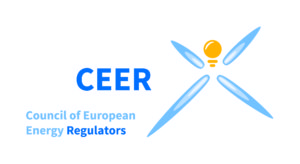Garrett Blaney, President of CEER and Chair of ACER Board of Regulators


CEER, as the voice of Europe’s energy regulators, has long had a reputation for being visionary and working to ensure that energy consumers benefit from market liberalisation. Since becoming leader of European energy regulators last November, I have sought to reinvigorate CEER with a renewed emphasis on fostering energy markets in Europe and empowering consumers in a changing energy system.
Accordingly, one of the first tasks that my colleagues and I have set ourselves is to develop a new strategy to guide CEER’s policy objectives and work programme in the coming years, helping to shape the sector in a way that is beneficial for all consumers. We recently marked the first key milestone in this process by publishing, for public consultation, CEER’s proposed 3D policy strategy from 2019 to 2021, focused on Digitalisation, Decarbonisation and Dynamic Regulation. This is with a view to providing for adaptive regulation that enables innovation and least-cost decarbonisation, in a manner that protects and empowers consumers.
This CEER strategy and associated 2019 work programme is out to public consultation until 10 August. We’d very much welcome your views on our strategy proposals before we finalise them later this year. This will help ensure a CEER strategy that is relevant to the challenges and opportunities ahead, which I intend to face head-on together with our regulators and Secretariat. I look forward to your input!
CEER Secretary General, Andrew Ebrill

What is your position about energy transition & and how your actions could accelerate the ambition in renewable energy ?
CEER actively supports the transition to a decarbonised energy sector. We see renewable electricity generation as playing a key role in this energy transition, as part of our general objective of decarbonisation at least cost to energy consumers.
Renewable generation, including wind and solar, has grown very significantly in Europe over the last 15 years, roughly doubling such that it is now 30% of Europe’s electricity production. It has therefore become a central part of Europe’s power sector, and it is expected to grow further to about half or more of its generation mix by 2030.
In this context, European energy regulators are working to facilitate a further increase in the level of renewable generation in the years ahead. We welcome and plan to implement the Clean Energy legislative proposals to retrofit the wholesale electricity markets and facilitate more renewables. We consider it important that renewables have the same rights, but also responsibilities, as other participants with respect to wholesale electricity markets. This includes the running of generating units on an economic basis and balancing responsibility. Such developments will help fully integrate renewables into the market, thereby minimising costs and protecting consumers – as is energy regulators’ mandate.
In relation to renewable support schemes, CEER regularly publishes data on their cost and type, and points out that, where supports are needed, they should be designed efficiently given their impact on energy bills and European cost competitiveness. CEER has therefore called for market-based systems to manage support scheme costs and, in a recent report, welcomes a trend in Europe towards competitive tendering procedures.
More broadly, while renewables are very important, we see them in the bigger picture of decarbonisation at least cost. Gas, including green gas, also has a significant role to play in the energy transition in the coming decades, as highlighted in our recent Future Role of Gas (FROG) report (see below). In addition, other means such as energy efficiency, flexibility, smart technology and empowered consumers can assist both increased renewable generation and the general decarbonisation agenda.
Could you present the PEER, and detail its recent activities
In the context of technological developments that are disrupting the traditional sectoral approach on which regulatory supervision is based, CEER has shown leadership in launching the PEER (Partnership for the Enforcement of European Rights) initiative. PEER aims to provide consistent consumer rights solutions in inter-related markets through enhanced cross-sectoral regulatory cooperation, at European level, across different public authorities responsible for enforcing consumer rights such as consumer and data protection authorities and various sectoral regulators.
Recent PEER activity
- A first step for CEER was to raise awareness on the need for more cooperation between authorities at European and national level. The European Commission and several EU agencies (e.g. ACER and ENISA) as well as the European Consumer Organisation (BEUC) and the Network of Energy Ombudsmen (NEON) now support PEER.
- A PEER regulatory roundtable on bundled products was held in October 2017 and has deepened the collective understanding of the participating regulators from different sectors (e.g. telecoms, energy), consumer protection authorities and ombudsmen of the opportunities and risks of bundled products.
What’s ahead?
- As a follow-up to the workshop, CEER is developing a PEER Guide on bundled products and is also considering developing a metric for energy regulators to monitor the evolution of bundled products in their national markets.
- There is a series of PEER events on cross-cutting issues planned (e.g. cybersecurity, a follow-up workshop on bundled products) to enhance regulators’ shared learning on trends and challenges.
- We will examine cross-sectoral cooperation models and case studies in the context of the requirements on national consumer protection authorities to cooperate with sectoral regulators under the EU’s Consumer Protection Cooperation Regulation (effective from 2020).
- We will continue to build the PEER online platform as a resource centre where interested parties can access information, share their own experiences and collaborate on good practices in cross-sectoral cooperation.
What is your vision on the future role of gas ?
CEER published the Future Role of Gas (FROG) report in March 2018. The objectives of this report were to identify key issues deriving from the future development of the natural gas sector in the EU to 2040, both from a commodity and infrastructure perspective, and to develop proposals for potential future regulatory initiatives that may be needed to reflect these developments.
Key FROG Findings
- Natural gas has the potential to contribute to decarbonisation in the EU for the coming decades. It remains competitive in the residential/heating sector and it may become important in the transportation sector as well as with LNG and Compressed Natural Gas (CNG) used as fuels.
- Gas has the potential to contribute to the EU’s decarbonisation agenda both as back-up for renewables and potentially in terms of renewable gases which can be accommodated in the existing infrastructure.
- The future gas demand will affect the traditional natural gas infrastructure. While a stable and high gas demand requires to maintain and extend the networks, a continuous decline of gas demand could potentially lead to under-utilisation and stranding of network assets which regulators may need to address.
- Regarding renewable gases, attention must not be limited to only facilitating the production of sufficient volumes, but also providing the infrastructure required to transport and distribute them.
- Innovation and decarbonisation incentives may be an important regulatory element to drive improvement in processes and technology applications in the gas sector and the involvement of the sector in the transition to a future energy system in general.
Next Steps
Based on the results of the FROG study, CEER will focus on addressing the challenges in greater detail and developing specific regulatory initiatives. A public consultation is foreseen in Q4 2018, following which CEER plans a paper in 2019 on the CEER’s vision on the future role of gas from a regulatory perspective. In 2019 CEER will also focus its work on regulating gas sector innovation and on gas infrastructure given the energy transition.
Last regulatory authority decisions/papers
- Renewables, flexibility, smart technology
https://www.ceer.eu/white-papers
https://www.ceer.eu/documents/104400/-/-/db9b497c-9d0f-5a38-2320-304472f122ec
- CEER’s 3-year, 3D Strategy, launched on 5 June 2018 for public consultation, is aimed to assist the energy transition benefiting the market, the environment and the consumers. The 3Ds CEER will focus on in the 3 years to come are: Digitalisation, Decarbonisation at least costs and Dynamic Regulation:
https://www.ceer.eu/3d-strategy-and-2019-wp
- PEER:
https://www.ceer.eu/documents/104400/6120855/PEER+Brochure/7ebc5063-2cf8-2734-06a3-27d6580bac1e
- FROG:
https://www.ceer.eu/documents/104400/-/-/6a6c72de-225a-b350-e30a-dd12bdf22378

















